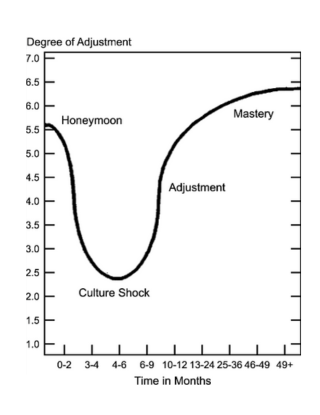
Tips for Successful Integration in a New Country
Moving to a new country is much more than just a change of residence. It's an adventure that offers the opportunity to discover new cultures, explore unfamiliar horizons, and develop valuable open-mindedness. Here are some practical tips to help you transition to a fulfilling expat life:
Understanding Cultural Differences
Europe is a continent rich in cultural diversity, with varied traditions, customs, and social norms from one country to another. Before your arrival, take the time to learn about the culture and values of your host country. Familiarize yourself with professional attitudes, social life, punctuality, and interpersonal interactions. A thorough understanding of these cultural differences will help you avoid misunderstandings and integrate more smoothly into your new environment.
Learn the Local Language
Although you might not need local language skills while working in customer service, sales or similar positions, it is still a good idea to learn some basic phrases to fully integrate yourself into the culture. In addition to facilitating daily communication, learning the local language will allow you to forge deeper connections with locals and access more social opportunities. Explore different learning methods, such as online courses, mobile apps, language exchanges, or even following local influencers and consuming content in the local language.
Understanding and Respecting Local Culture
Each European country has its own pace of life and distinct daily habits. Be prepared to adapt to these differences and embrace a more local way of life. Whether it's about food, work schedules, or social customs, be flexible and open-minded. Respect local traditions and adjust your behaviour accordingly. For example, learn appropriate greetings, adhere to dress codes, and be mindful of cultural sensitivities. Learn to appreciate the small differences that make each culture unique and enriching.
Get Involved in the Local Community
Actively engaging in the local community is an excellent way to build social connections, discover new activities, and positively contribute to your environment. Join clubs, associations, or volunteer groups that align with your interests and passions. Attend cultural events, festivals, and local celebrations to immerse yourself in the social and cultural life of your new country.
Build a Network
When settling in a new country, it's important to cultivate a strong support network to help you overcome challenges and feel supported. Seek out fellow expats or local residents who can provide practical advice, useful information, and emotional support. Use social media, expat forums, and networking events to meet other expats and establish meaningful connections.
Take Care of Yourself
Adapting to a new country can be a demanding and sometimes emotionally challenging process. Take care of your physical and mental well-being by exercising regularly, eating a balanced diet, practising meditation or yoga, and allowing yourself moments of relaxation. Be patient with yourself and accept that adaptation takes time. Learn to overcome obstacles with resilience and optimism, drawing lessons from each experience.
The Adaptation Process
It's normal to go through an adaptation process. This can be best described through the “U” curve by J. Stewart Black & Mark Mendenhall which consists of 4 phases that each expat faces:
.png)
The Honeymoon Phase: Characterised by enthusiasm and excitement at discovering a new environment.
The Culture Shock Phase: In which expats may experience disillusionment and frustration as they confront the realities of daily life in their new country.
The Adaptation Phase: Where expats gradually adapt to their new environment, developing strategies to overcome cultural and linguistic barriers.
The Maturity Phase: Where expats achieve a high level of adaptation and comfort in their new country, feeling fully integrated into the local culture and society.
Understanding these different phases of the adaptation process will help you anticipate challenges and develop strategies to overcome difficulties encountered throughout your integration journey in a new country.
